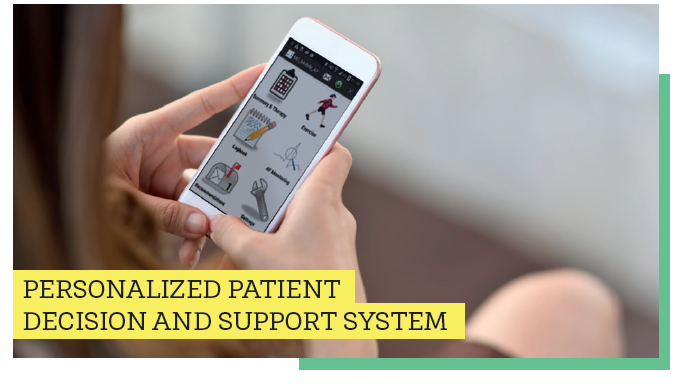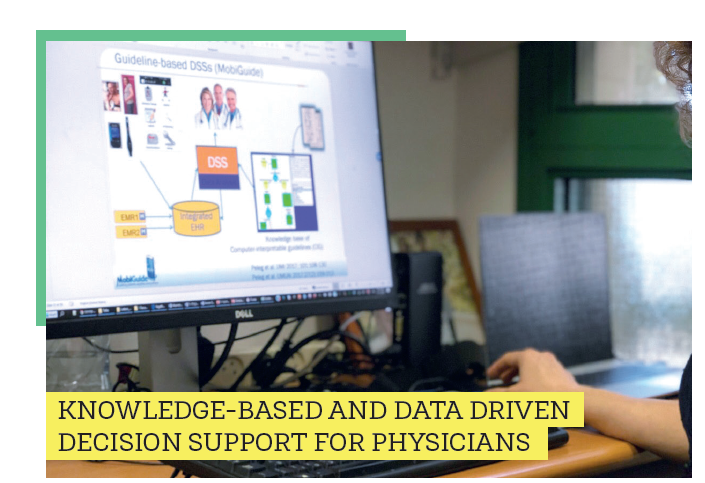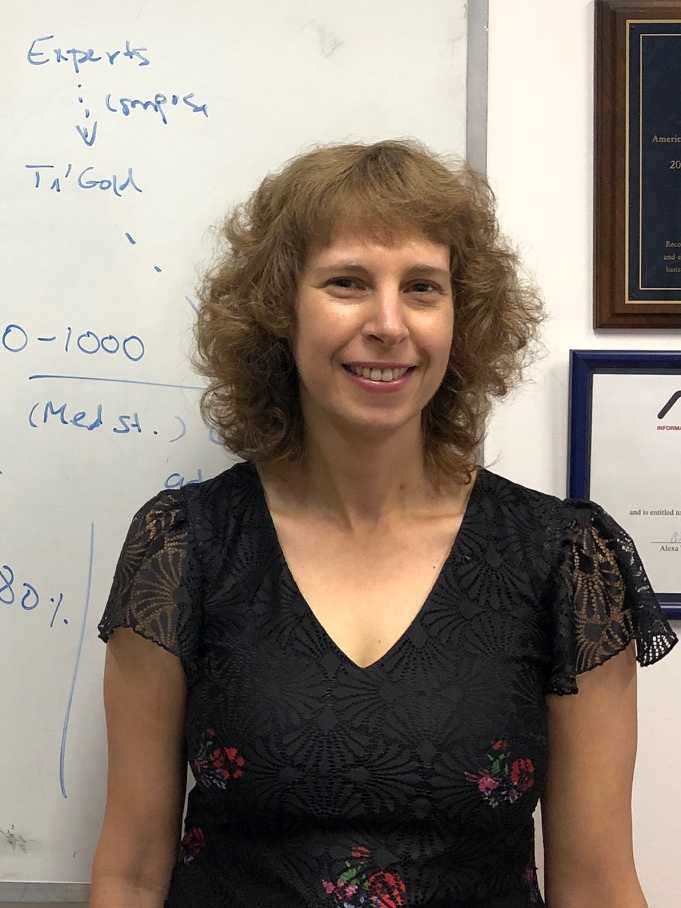

Health
Management
Made Easy
Following successful pilot testing in Spain and Italy, University of Haifa researchers continue to lead the way in mobile patient support systems and are now developing increasingly sophisticated knowledge-based and data-driven decision-support tools for physicians.
The MobiGuide system, which provides patients and health care professionals with real-time clinical information and suggestions, has recently completed two successful pilot trials. The results indicating patient compliance –the degree to which patients adhere accurately to medical advice– surpassed the expectations of researchers and clinicians. “We were delighted to discover that in a clinical study of pregnant women with gestational diabetes in Spain, all of the users persistently followed their monitoring and treatment recommendations as prescribed by their physicians,” explains Prof. Mor Peleg, scientific coordinator of the MobiGuide project and former head of the Department of Information Systems. “The high rate of adherence, nearly 99%, resulted in stabilized blood sugar, significantly lower blood pressure, and a trend for fewer C-sections. Likewise, findings from a pilot conducted with atrial fibrillation (irregular heartbeat) patients in Italy indicated a 75-82% compliance rate as well as an increase in patient satisfaction, due to increased safety.”
The high success rates are anything but trivial, given that 20-30% of prescription medication in the US alone are never filled, and that 50% of medications for chronic disease are not taken as prescribed. Since 99% of disease management is in the hands of patients and caregivers, there is a critical need for tools that will make it easier on patients to stick to their medication plan.
“There are a number of reasons why patients do not always follow their medications,” explains Peleg. “Multiple prescriptions can be confusing, symptoms may be intermittent, or patients alter their prescriptions because they don’t like the side effects. Digital technology can personalize therapy by monitoring patient status and enabling real time interaction with doctors. MobiGuide was designed with this in mind – to improve patients’ quality of life, help facilitate patient trust, reduce medical errors and hospitalization admissions, and lower doctors’ work loads.”
“Building on the success of MobiGuide, we are now working with colleagues at Stanford University and Rambam Health Care Campus on extending the automated intelligence system to handle patients with chronic multimorbidity conditions, ranging from diabetes, cardiovascular disease, osteoporosis, schizophrenia, and more, considering patient preferences in treatment decisions. In the new system, patient clinical goals are shown as trees, with ‘green trees’ representing goals that are satisfied by the current treatment. The algorithm checks for ‘non-green trees’ (unmet goals) and alerts both patients and physicians about critical changes in health status.”
 Prof. Mor Peleg is Chair of the new Data Science Program, a member of The Caesarea Edmond Benjamin de Rothschild Foundation Institute for Interdisciplinary Applications of Computer Science, and recipient of the 2019 Outstanding Researcher Rector’s Award. After earning her PhD at the Technion, she completed her postdoc in biomedical informatics at Stanford University.
Prof. Mor Peleg is Chair of the new Data Science Program, a member of The Caesarea Edmond Benjamin de Rothschild Foundation Institute for Interdisciplinary Applications of Computer Science, and recipient of the 2019 Outstanding Researcher Rector’s Award. After earning her PhD at the Technion, she completed her postdoc in biomedical informatics at Stanford University. 
